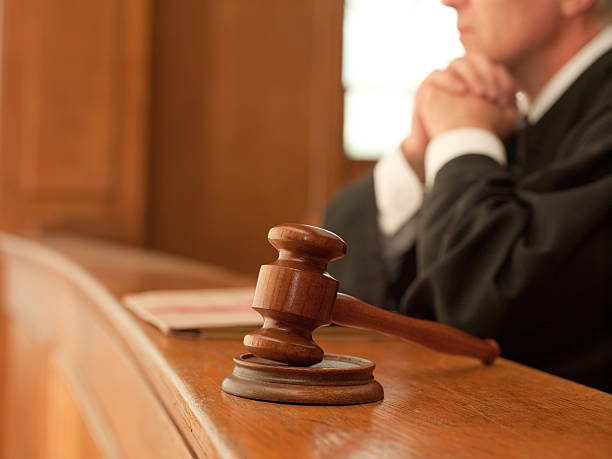The court must interpret the law on the recusal of a judge strictly. This was held in a judgement in Mary Grace D’Amato -v- Luqa D’Amato et, delivered on 23 March 2023 by the First Hall of the Civil Courts presided by Mr Justice Robert Mangion.
The case concerned a claim filed by the Plaintiff wherein she is asking the court to rescind a contract of sale of a garage which included in a separation judgement. The Defendant Luqa D’Amato asked that Mr Justice Mangion recuse himself because he was the judge that delivered the separation contract. This was based on Article 734(1)(d) of the Code of Organization and Civil Procedure. This read:
“(1) A judge may be challenged or abstain from sitting in a cause – (d)(i) if he had given advice, pleaded or written on the cause or on any other matter connected therewith or dependant thereon;
(2) A judge may be challenged or abstain from sitting in a cause when he has previously taken cognizance of and expressed himself on the same merits of that cause when sitting as a judge in the Court of voluntary jurisdiction.”
A judge may be challenged only on the ground listed in Article 734 and these are in exceptional circumstances. In this case the separation was decided by the presiding judge in this case.
The Defendant argued that justice could not be meted out, once the presiding judge is aware of the serious accusation the parties hurdled at each other during the separation case. The Court pointed out that the subject matter of this case, is with regard to a contract that had taken place after the separation and therefore, has nothing to do with the separation of the parties. Therefore, none of the circumstances mentioned in Article 734. The Court quoted a constitutional judgement Sandro Chetcuti -v- Avukat Generali decided on 12 July 2005, where there are instances where the protection of an individual’s fundamental human rights may prevail over general procedural law. Therefore, there may be instances not covered by Article 734 of the Code of Organisation and Civil Procedure (COCP), but Article 39 of the Constitution and Article 6 of the European Convention may allow a remedy is the impartiality of a judge may have to be protected.
Mr Justice Mangion agreed that there may be exceptional reasons that a judge may be challenged for reasons not listed in Article 734. The challenging of a judge is intended to protect the integrity of the administration of justice. In fact a judge is challenged when there is doubt that he or she will be impartial to the case they have in front of him/her.
A judge would have taken an oath to be impartial and guarantee his or her independence. In this case the Defendant declared that he has not doubt of the impartiality and professionalism and integrity of the Court. The issue that the Defendant had was on the fact that in the separation case the Parties had made serious accusations to each other. Therefore, he is afraid that the Court may be bias of what was said in the separation case. The Court quoted from a European Court of Huma Rights judgement, Lindon Otchakovskylaurens and July -v- France decided on 22 October 2007:
“There are two tests for assessing whether a tribunal is impartial: the first consists in seeking to determine a particular judge’s personal conviction or interest in a given case and the second is ascertaining whether the judge offered guarantees sufficient to exclude any legitimate doubt in this respect…… As to the second test, when applied to a body sitting as a bench, it means determining whether, quite apart from the personal conduct of any of the members of that body, there are ascertainable facts which may raise doubts as to its impartiality. In this respect even 9 appearances may be of some importance. It follows that when it is being decided whether in a given case there is a legitimate reason to fear that a particular body lacks impartiality, the standpoint of those claiming that it is not impartial is important but not decisive. What is decisive is whether the fear can be held to be objectively justified.”
In another judgement by the UK Court of Appeal Locabail (UK) Ltd -v- Bayfied, the Court said:
“The mere fact that a judge, earlier in the same case or in a previous case, had commented adversely on a party or witness, or found the evidence of a party or witness to be unreliable, would not without more found a sustainable objection. In most cases, we think, the answer, one way or the other, will be obvious. But if in any case there is real ground for doubt, that doubt should be resolved in favour of recusal. We repeat: every application must be decided on the facts and circumstances of the individual case. The greater the passage of time between the event relied on as showing a danger of bias and the case in which the objection is raised, the weaker (other things being equal) the objection will be.”
The case in hand concerns a garage which was assigned to the Defendant in the separation, as long as he pays the Plaintiff €594.15 and continues to pay the bank. In 2021 the Defendant sold the garage. The Court held that it could not understand how it could be bias on this point of law and how he can be unduly influenced knowing who was responsible for the breakdown of the marriage.
The Court then moved to turn down the challenged and ordered that the case continue.
Av. Malcolm Mifsud
Partner
Mifsud & Mifsud Advocates
The article may also be accessed on Malta Today.
For more information you can contact one of our Team Members at Mifsud & Mifsud Advocates.











